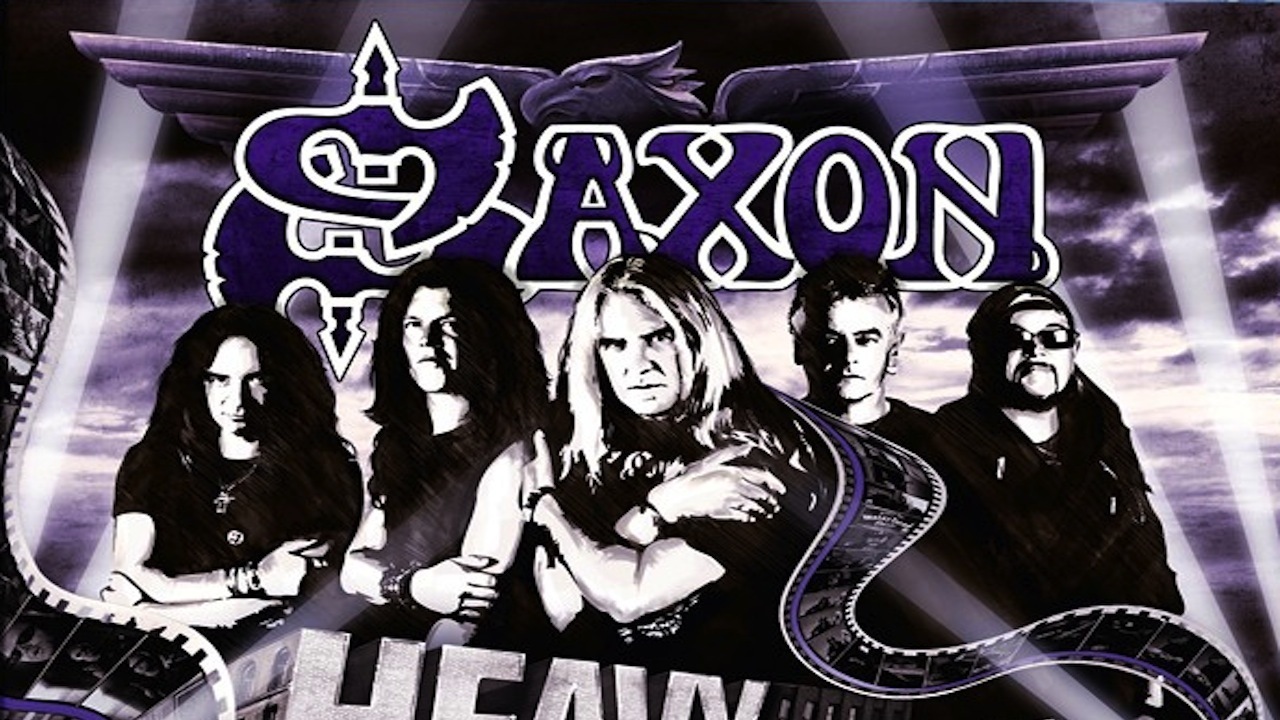Never mind that Peter ‘Biff’ Byford has spent 32 years singing about Wheels Of Steel, Saxon’s frontman surely has cojones forged of the same metal? As frontrunners of the New Wave Of British Heavy Metal, his band are both influential and important. However, due to a combination of poor fortune and even worse decision-making – hiring REO Speedwagon’s producer in an attempt to court the American market for 1984’s Crusader was a spectacular gaffe – by the following decade, Saxon’s empire lay in chaos and ruin.
In 1991 they found themselves playing to a less than packed crowd at London’s Marquee Club, seemingly in freefall. Advisedly, then, Saxon went where they were still wanted. Signed to a German record label they relocated across the channel for a number of years. Slowly but surely, however, Saxon have used a combination of graft, nous and charisma, also a willingness to gamble with reality TV, to work their way back to the forefront of the British heavy metal scene.
First issued via their fan club two years ago, Heavy Metal Thunder – The Movie tells their remarkable story. It begins as Saxon prepare to headline “the biggest heavy metal festival in the world” (to quote narrator, Little Angels’ Toby Jepson) in the group’s 30th anniversary year of 2009, the warm tributes from other acts on the bill including Airbourne, Machine Head, Doro Pesch and Rage speaking volumes.
Later on the truly big guns are rolled out. Fanboy Lars Ulrich and Lemmy, who gave Saxon their first big break on Motörhead’s Bomber tour, both offer ringing endorsements. The two-hour rockumentary admirably charts the group’s early rise as Son Of A Bitch. Byford speaks of his South Yorkshire youth spent coal mining but fails to mention his other career as a bin man. The tale of the band travelling to gigs in a van previously owned by a tripe manufacturing company, the latter’s name visible after a paint cover-up wore off, is absolutely priceless.
To the credit of the filmmakers, Graham Oliver and Steve ‘Dobby’ Dawson, the co-founding guitarist and bass player that departed Saxon acrimoniously, get to have their say. To say they’re plain-speaking is to understate things somewhat. There’s an element of déjà vu in that many of the movie’s ‘talking heads’ also graced the silver screen tribute to Anvil, another down-at-heel rock band. However, the difference between that film and this is the ability of its director, Sasha Gervasi, to translate pathos into sympathy and, thus, hopefully, mainstream appeal.
Sex, drugs and rock’n’roll are all hungrily addressed and there’s no doubt that Saxon fans old and new will cherish this film. However, the fact that it fails to address the real reasons for the post-Crusader meltdown suggests that other fundamental issues may have been swept under the carpet.

